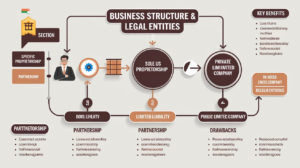The rise of remote work has been one of the most significant trends in the modern workforce. Initially accelerated by the global pandemic, this shift has redefined how businesses operate and how employees perceive their work-life balance. As technology continues to evolve and organizations adapt, the remote work landscape is becoming more nuanced. This article explores the history, benefits, challenges, and future of remote work, providing insights for both employers and employees navigating this new world.
The Evolution of Remote Work
A Historical Perspective
Remote work is not a novel concept. It has roots in telecommuting, which emerged in the 1970s as a response to technological advancements. Early computers and telecommunications allowed workers to complete tasks from home, paving the way for flexible work arrangements. However, it wasn’t until the rise of the internet in the 1990s that remote work gained traction.
The dot-com boom led to a proliferation of digital tools and platforms, making it easier for teams to collaborate from various locations. Yet, traditional office culture remained dominant, with most companies favoring in-person work.
The Pandemic Catalyst
The COVID-19 pandemic in 2020 served as a powerful catalyst for remote work. As lockdowns and health concerns swept the globe, organizations were forced to adapt quickly. Companies that previously resisted remote work had to embrace it or risk business continuity. The rapid transition showcased the potential of remote work, leading many to reevaluate their long-term policies.
Benefits of Remote Work

1. Increased Flexibility
One of the most significant advantages of remote work is the flexibility it offers. Employees can choose when and where they work, leading to a better work-life balance. This flexibility can reduce stress and increase job satisfaction, ultimately improving productivity.
2. Cost Savings
Both employers and employees can benefit financially from remote work. Employers can save on overhead costs associated with maintaining physical office spaces, while employees can save on commuting expenses, work attire, and daily meals. This cost-effectiveness can lead to increased profitability and disposable income for workers.
3. Access to a Global Talent Pool
Remote work allows companies to tap into a broader talent pool. They are no longer limited to hiring talent within a specific geographical area, enabling them to find the best candidates regardless of location. This inclusivity can enhance diversity within teams and bring varied perspectives to problem-solving.
4. Enhanced Productivity
Many studies suggest that remote workers are often more productive than their in-office counterparts. The absence of office distractions, coupled with the ability to create a personalized work environment, can lead to improved focus and efficiency. Additionally, remote work allows employees to design their schedules to align with their peak productivity hours.
5. Environmental Benefits
Remote work can also contribute to environmental sustainability. With fewer people commuting, there are reduced carbon emissions and decreased traffic congestion. Companies adopting remote work policies can position themselves as environmentally conscious organizations, which can be appealing to consumers and potential employees.
Challenges of Remote Work
1. Communication Barriers
While technology facilitates communication, it can also create barriers. Misunderstandings can arise without non-verbal cues, and employees may feel isolated. Building a strong remote culture requires intentional efforts to maintain open lines of communication.
2. Difficulty in Collaboration
Collaborative tasks can be challenging in a remote setting. While tools like Slack, Zoom, and Microsoft Teams have made it easier to collaborate, some employees may find it difficult to replicate the spontaneous brainstorming sessions and camaraderie that occur in an office environment.
3. Work-Life Balance Issues
While remote work offers flexibility, it can blur the boundaries between work and personal life. Many remote workers report feeling the need to be “always on,” leading to burnout and reduced productivity. It’s crucial for both employees and employers to establish clear boundaries.
4. Security Concerns
Remote work can pose security risks, especially when employees use personal devices or unsecured networks to access company data. Organizations must prioritize cybersecurity measures and provide training to ensure employees understand the importance of data protection.
5. Management Challenges
Managing remote teams requires a different approach than traditional management. Leaders must adapt their styles to motivate and engage employees from a distance. This may include implementing regular check-ins, setting clear expectations, and fostering a culture of trust.
Best Practices for Remote Work

1. Establish Clear Communication Protocols
Effective communication is essential for remote teams. Organizations should set clear communication guidelines, including preferred tools, response times, and protocols for meetings. Regular check-ins and updates can help maintain alignment and build rapport among team members.
2. Utilize Technology Wisely
Investing in the right technology can streamline remote work. Collaboration tools, project management software, and secure communication channels are vital for fostering productivity. Organizations should provide training to ensure employees can leverage these tools effectively.
3. Set Clear Expectations and Goals
To ensure productivity, it’s essential to establish clear expectations and goals for remote employees. This includes outlining performance metrics, deadlines, and specific responsibilities. Regular feedback can help employees stay on track and feel valued.
4. Encourage Work-Life Balance
Promoting a healthy work-life balance is crucial for remote employees. Organizations should encourage employees to set boundaries, take breaks, and disconnect after work hours. Offering mental health resources and promoting wellness initiatives can support overall employee well-being.
5. Foster a Sense of Community
Creating a strong remote culture can help mitigate feelings of isolation. Virtual team-building activities, social hours, and recognition programs can foster camaraderie and strengthen relationships among team members.
The Future of Remote Work

1. Hybrid Work Models
The future of remote work is likely to feature hybrid models, combining remote and in-office work. Many organizations are adopting flexible policies that allow employees to choose their work environment. This approach caters to diverse preferences and can enhance job satisfaction.
2. Advancements in Technology
As technology continues to evolve, remote work will become even more efficient. Innovations in virtual reality (VR) and augmented reality (AR) may revolutionize how teams collaborate, allowing for immersive experiences that mimic in-person interactions.
3. Shifts in Company Culture
Remote work is prompting a reevaluation of company culture. Organizations will need to focus on building a culture that values inclusivity, flexibility, and trust. Emphasizing results over hours worked will become increasingly important in fostering employee engagement.
4. Global Workforce Diversity
With remote work opening up opportunities for a global talent pool, organizations will likely see increased diversity within teams. Embracing diverse perspectives can drive innovation and enhance problem-solving capabilities.
5. Emphasis on Employee Well-Being
As remote work becomes more mainstream, there will be a greater emphasis on employee well-being. Organizations will need to prioritize mental health resources, flexible working arrangements, and a supportive culture to retain talent in this competitive landscape.
Conclusion
Remote work has transformed the traditional employment landscape, offering numerous benefits while also presenting unique challenges. As organizations and employees navigate this evolving terrain, the key to success lies in effective communication, leveraging technology, and prioritizing work-life balance.
The future of work is likely to be a blend of remote and in-office arrangements, driven by advancements in technology and changing employee expectations. By embracing these changes and fostering a culture of trust and inclusivity, businesses can position themselves for success in this new era of work. As we move forward, remote work is not just a temporary solution—it is a fundamental shift that will shape the future of employment for years to come.









1 Comment
Pingback: AMC Stock Analysis and Forecast - Urban Vibe Mag